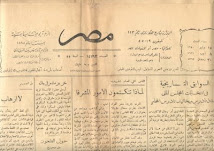
annual report of the US State Department on human rights around the world. Released on March 11, 2008
Egypt 2008
Freedom of Religion
The constitution provides for freedom of belief and the practice of religious rites; however, the government restricted the exercise of these rights. According to the constitution, Islam is the official state religion and Shari'a (Islamic law) the primary source of legislation. Religious practices that conflict with the government's interpretation of Shari'a are prohibited. Members of non-Muslim religious minorities officially recognized by the government generally worshiped without harassment and maintained links with coreligionists in other countries. Members of religions that are not recognized by the government, particularly the Baha'i Faith, experienced personal and collective hardship.
Approximately 90 percent of citizens are Sunni Muslims; less than 1 percent are Shi'a Muslims. Estimates of the percentage of Christians ranged from 8 to 12 percent, or between 6 and 10 million, the majority of whom belonged to the Coptic Orthodox Church. There are small numbers of Mormons and Jehovah's Witnesses, but the government does not recognize either group. The non-Muslim, non-Coptic Orthodox communities ranged in size from several thousand to hundreds of thousands. The number of Baha'is is estimated at 2,000 persons.
The law bans Baha'i institutions and community activities and stripped Baha'is of legal recognition. The government continued to deny civil documents, including ID cards, birth certificates, and marriage licenses, to members of the Baha'i community. The MOI requires identity card applicants to self-identify as Jew, Christian, or Muslim. As a result, Baha'is face great difficulties in conducting civil transactions, including registering births, marriages and deaths, obtaining passports, enrolling children in school, opening bank accounts, and obtaining driver's licenses. During the year, Baha'is and members of other religious groups were compelled either to misrepresent themselves as Muslim, Christian or Jewish, or go without valid identity documents. Many Baha'is chose the latter course.
By September 30, all citizens had to obtain new computer identification cards or risk detention; however, the government did not enforce this requirement. In December 2006 the Supreme Administrative Court overturned a lower court ruling, deciding that Baha'is may not list their religion in the mandatory religion field on obligatory government identity cards. In May 2006 the MOI successfully appealed an administrative court ruling issued in April 2006, which supported the right of Baha'i citizens to receive ID cards and birth certificates with the Baha'i religion noted on the documents. The government issued passports, which do not indicate the holder's religion, for Baha'i citizens.
In February the EIPR filed a lawsuit on behalf of Hosni Hussein Abdel-Massih, who was suspended from the Suez Canal University's Higher Institute of Social Work due to his inability to obtain an identity card because he is a Baha'i. Students must produce a military draft postponement to complete their university education without interruption; however, one cannot obtain a military draft number without being issued a national ID number and a national ID card. The case was pending at year's end.

On September 10, the NCHR organized a workshop to discuss the issue of religious identity on ID cards. General Aly Abdel Mawla, Head of General Administration for Legal Affairs in the MOI, opposed the suggestion that the government allow the religion field to be left blank, asserting that the policy of requiring the indication of religious affiliation aims to protect freedom of religion.
In October Raouf Hindi Halim, a Baha'i convert, filed suit against the government to issue birth certificates for his twin daughters with the religion field left blank or to write (Baha'i) in the field. The case was postponed several times since it was first brought before the administrative court in 2004. Halim obtained birth certificates for the children when they were born in 1993 which recognized their Baha'i religious affiliation, but new certificates were mandatory, and the children were unable to enroll in public schools without them. The case remained pending at year's end.Du
http://www.state.gov/












No comments:
Post a Comment